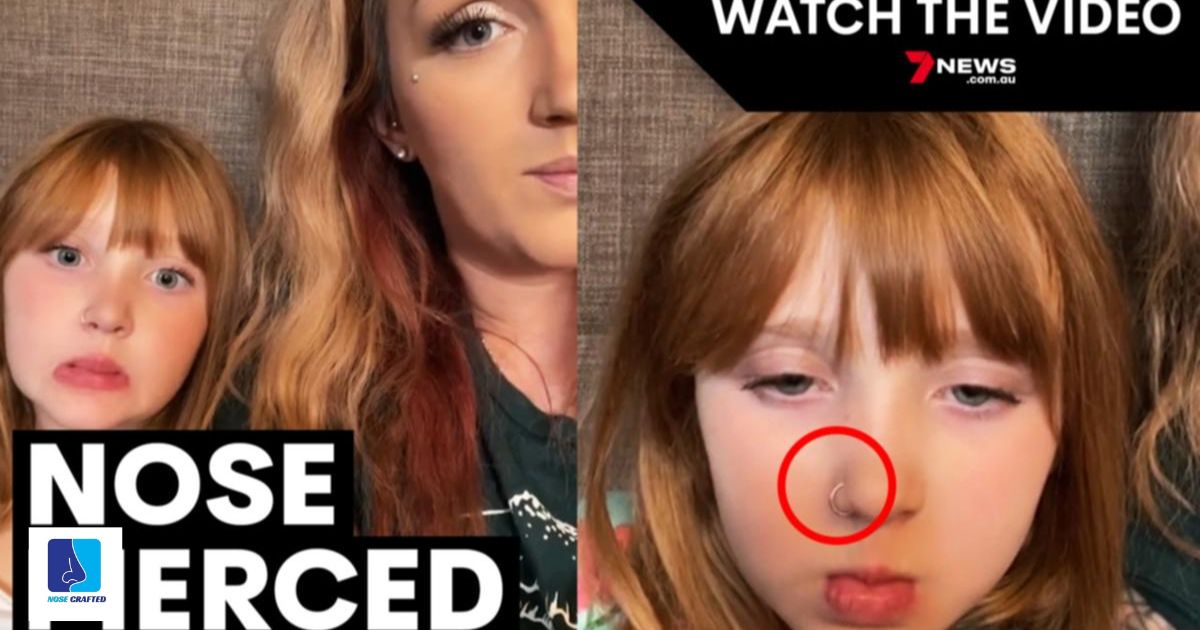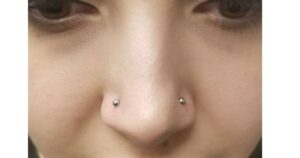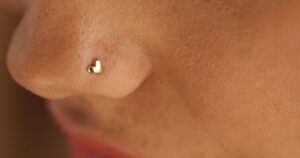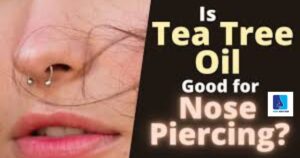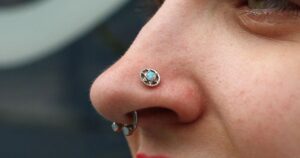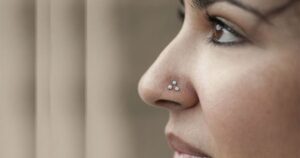Nose piercing is a form of body modification where a small hole is made through the skin or cartilage of the nose. It involves inserting jewelry, such as a stud or ring, into the piercing. This practice has cultural significance in various societies and is also a fashion statement for many individuals. Nose piercing can be done professionally in a piercing studio or at home, but proper hygiene and aftercare are essential to prevent infections.
Are you considering a nose piercing but unsure about age requirements? Wonder no more! Discover how old you need to be to get a nose piercing and take the first step towards expressing your individuality with style and confidence.
The age requirement for getting a nose piercing varies depending on location and regulations. Typically, minors may need parental consent, while the legal age for piercings without consent ranges from 16 to 18 years old. It’s essential to research local laws and consult with a reputable piercer before making any decisions.
Factors Influencing Age Restrictions
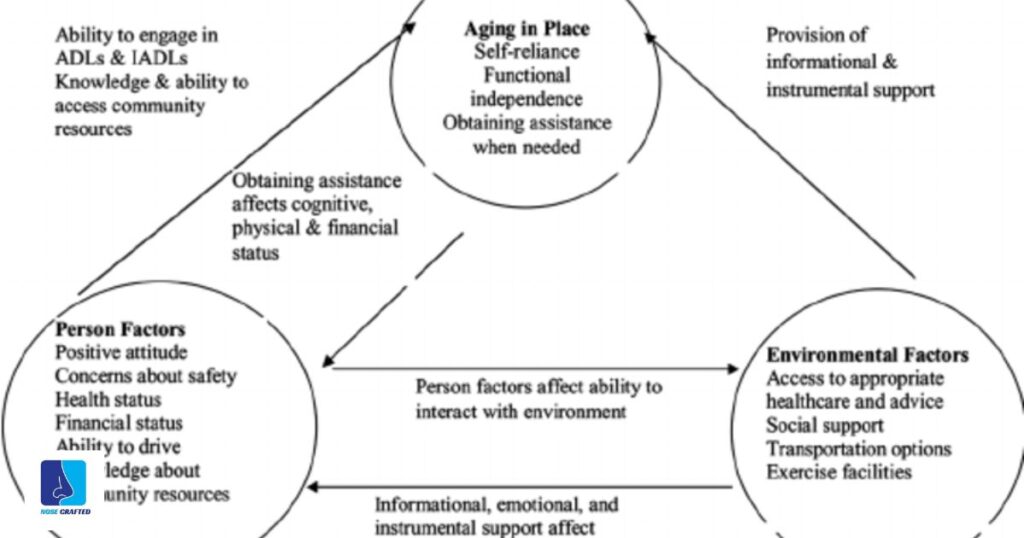
Age restrictions for nose piercings are influenced by various factors, including cultural norms, health and safety concerns, and piercing studio policies. In some cultures, piercings are seen as rites of passage and may be permitted at younger ages, while in others, there may be strict regulations regarding the minimum age for piercings. Health and safety considerations play a significant role, as younger individuals may be more susceptible to complications such as infections or improper healing.
Understanding these factors is crucial for individuals considering a nose piercing, as it allows them to make informed decisions regarding their own health and well-being. By researching local regulations, consulting with piercing professionals, and considering personal readiness, individuals can navigate age restrictions with confidence and ensure a safe and positive piercing experience.
Cultural Norms
Cultural norms refer to the unwritten rules and behaviors that are widely accepted and practiced within a particular society or community. These norms shape how individuals interact, communicate, and express themselves within their cultural context. They encompass various aspects of life, including social etiquette, gender roles, family structures, and religious practices. Cultural norms serve as guidelines for behavior, influencing everything from personal relationships to professional conduct.
Cultural norms can vary significantly from one culture to another, highlighting the rich diversity of human societies. What may be considered acceptable or even encouraged in one culture could be frowned upon or taboo in another. These norms are often deeply rooted in history, traditions, and shared values, providing a sense of identity and belonging to members of a community. However, they are not static and can evolve over time in response to social, political, and economic changes.
Health and Safety Concerns

Health and safety concerns are paramount when it comes to getting a nose piercing. One major concern is the risk of infection, which can occur if proper hygiene practices aren’t followed during and after the piercing process. Additionally, allergic reactions to piercing materials, such as nickel, can pose a threat to one’s health. It’s crucial to choose a reputable piercing studio that follows strict sterilization protocols and uses high-quality, hypoallergenic jewelry to minimize these risks.
Furthermore, potential complications like excessive bleeding, nerve damage, or scarring highlight the importance of seeking professional piercers with experience and expertise. By prioritizing health and safety precautions, individuals can enjoy their nose piercings with peace of mind, knowing that they’ve taken the necessary steps to minimize any associated risks.
Piercing Studio Policies
Piercing studio policies outline the rules and regulations that govern the piercing process within a particular establishment. These policies often cover various aspects, including age requirements, health and safety protocols, and consent procedures. Studios may enforce strict hygiene standards, such as using sterilized equipment and maintaining a clean environment, to ensure the well-being of their clients. It’s crucial to follow these guidelines to guarantee a safe and successful piercing experience. Once your piercing adheres to these policies, you can confidently say that your nose piercing is healed.
Additionally, piercing studio policies may detail the types of piercings offered, the materials used for jewelry, and aftercare instructions. By adhering to these policies, both piercers and clients contribute to a safe and positive piercing experience. It’s crucial for individuals considering a piercing to familiarize themselves with the policies of their chosen studio to ensure a smooth and satisfactory process.
Age Considerations for Minors
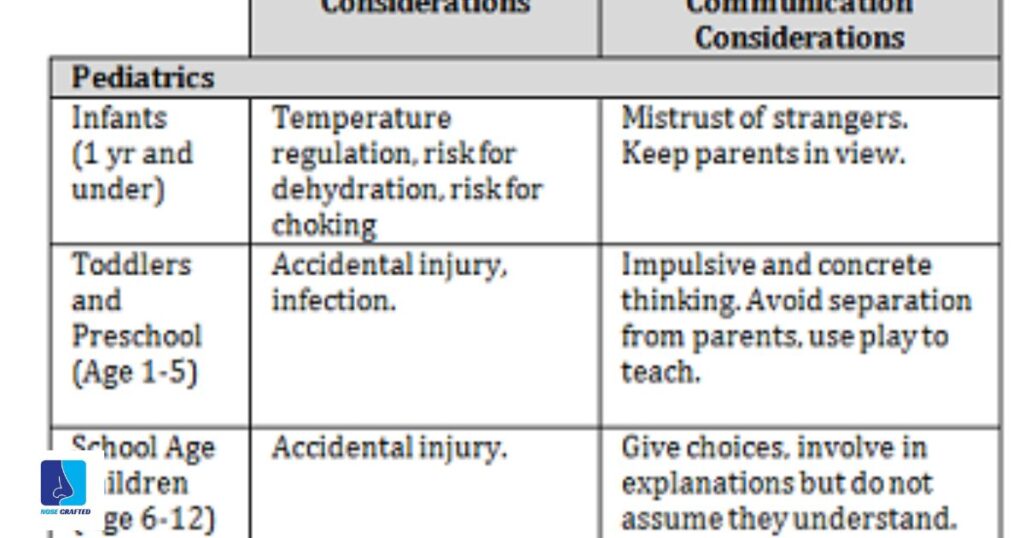
When it comes to minors considering a nose piercing, age considerations play a crucial role in the decision-making process. It’s essential to understand the legal requirements in your area, as age restrictions may vary. In many places, parental consent is necessary for individuals under a certain age to get a piercing, highlighting the importance of involving parents in the decision.
Maturity and responsibility are factors to consider, as piercings require proper care and attention to avoid complications. Young individuals should assess their readiness for the commitment involved in piercing care, ensuring they can maintain good hygiene practices and follow aftercare instructions diligently. Consulting with a professional piercer can provide valuable guidance and support in navigating age considerations for minors.
Parental Consent Protocols
Parental consent protocols for nose piercings are essential safeguards in place to ensure the well-being of minors. In many regions, individuals under a certain age must have explicit permission from a parent or legal guardian before undergoing the piercing procedure. This requirement aims to involve parents in the decision-making process, allowing them to consider factors such as the minor’s maturity level, readiness for the responsibility of piercing aftercare, and any potential health risks.
These protocols often involve the parent or guardian accompanying the minor to the piercing studio to provide consent in person or signing a consent form beforehand. Additionally, some piercing establishments may have specific guidelines regarding parental involvement, emphasizing the importance of open communication and understanding between parents and their children when considering such a decision.
Responsibility and Maturity Factors
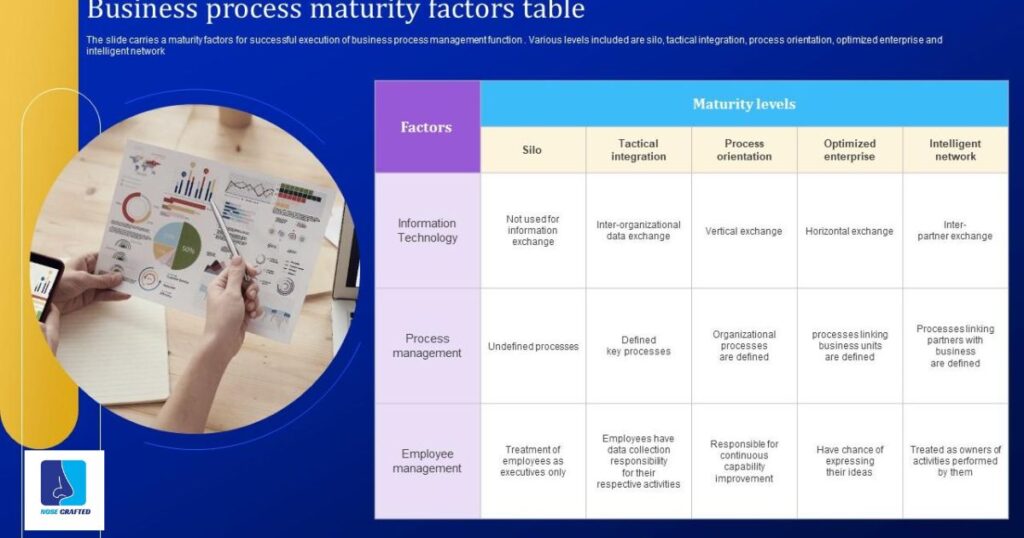
When considering getting a nose piercing, responsibility and maturity play significant roles in the decision-making process. Responsible behavior involves understanding the commitment and aftercare necessary for proper healing. Maturity encompasses not only age but also emotional readiness to handle the responsibilities associated with piercing, such as hygiene practices and potential discomfort during the healing period.
Individuals must assess their readiness to take on these responsibilities and consider how they will handle any challenges that may arise. Mature decision-making involves weighing the pros and cons, understanding the potential risks, and being prepared to handle them responsibly. By considering these factors, individuals can ensure a positive and fulfilling piercing experience.
Professional Advice for Young Individuals
Professional advice for young individuals seeking nose piercings is crucial for ensuring a safe and informed experience. Piercing professionals can provide valuable insights into the process, including proper aftercare techniques and potential risks associated with piercing. They can also offer guidance on selecting appropriate jewelry and ensuring the piercing heals correctly.
Additionally, seeking professional advice allows young individuals to address any concerns or questions they may have before undergoing the procedure. Piercing professionals can assess factors such as skin sensitivity and facial anatomy to determine the best approach for each individual. By consulting with experts in the field, young individuals can embark on their piercing journey with confidence and peace of mind.
Can A 10 Year Old Get A Nose Piercing

- Enhanced Confidence: Expressing individuality at a young age can boost self-esteem and confidence.
- Cultural Significance: Nose piercings may hold cultural significance for some families or communities.
- Parental Bonding: Going through the piercing process with parental support fosters bonding and trust.
- Personal Expression: It allows children to explore their personal style and preferences.
- Social Acceptance: In some circles, having a nose piercing may enhance social acceptance or belonging.
- Responsibility Development: Learning to care for a piercing promotes responsibility and hygiene.
- Empowerment: Making choices about their appearance empowers children to assert their autonomy.
How Old Do You Have To Be To Get A Nose Piercing With Parental Consent
With parental consent, the age requirement for getting a nose piercing can vary. In many places, individuals as young as 16 can undergo the procedure with a parent’s permission. However, it’s essential to check local regulations and ensure both parties understand the process and aftercare involved.
Can A 12-Year-Old Get A Nose Piercing
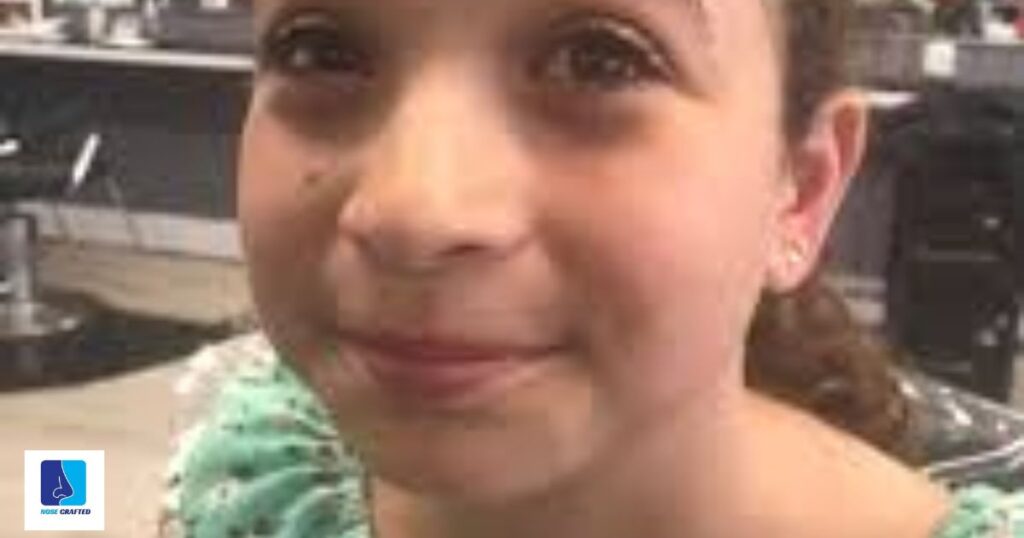
Whether a 12-year-old can get a nose piercing depends on various factors, including parental consent and local regulations. While some jurisdictions may allow it with parental approval, others may have stricter age restrictions. It’s crucial for parents and guardians to consider the maturity level and readiness of the child before making a decision about such a significant body modification.
Can A 13-Year-Old Get A Nose Piercing With Parental Consent
| Consideration | Details |
| Legal Requirements | Check local laws regarding the minimum age for piercing with parental consent |
| Parental Consent | Ensure parents are willing to provide consent for the procedure |
| Piercer’s Assessment | Consult with a professional piercer to evaluate readiness and safety |
| Aftercare Responsibilities | Understand the importance of proper aftercare and commitment to it |
| Maturity and Readiness | Assess the individual’s maturity level and readiness for the responsibility |
Remember, it’s essential to thoroughly research and consider all factors before proceeding with any body modification procedure, especially for minors.
How Old Do You Have To Be To Get A Nose Piercing At Claire’s
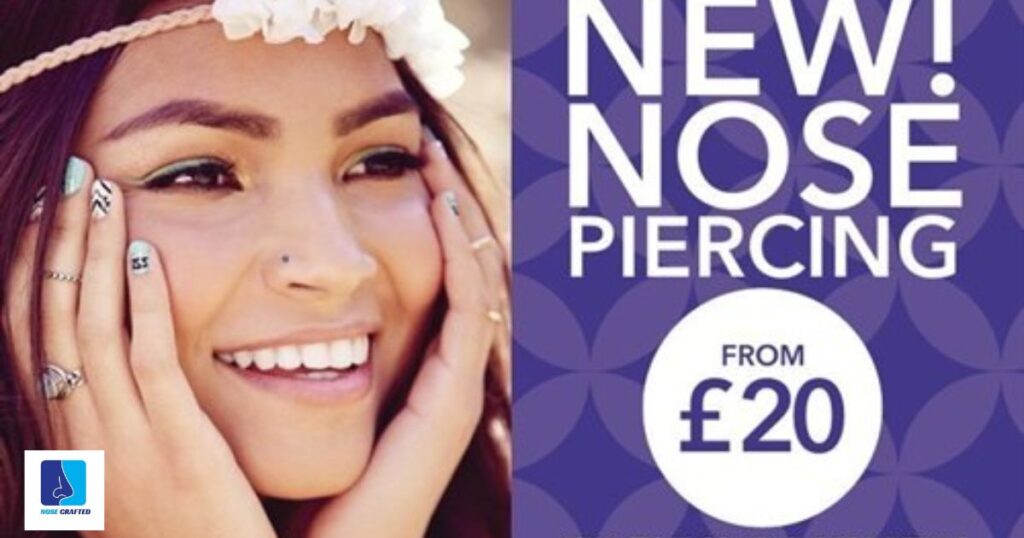
At Claire’s, the age requirement for getting a nose piercing typically starts at 13 years old. However, parental consent is essential for minors under 18. The process is done by trained professionals in a safe and hygienic environment, ensuring a positive experience for customers of all ages.
Can A 14 Year Old Get A Nose Piercing
The decision to allow a 14-year-old to get a nose piercing depends on various factors. In many places, parental consent is required for minors to undergo such procedures. However, it’s crucial to consider the individual’s maturity level, readiness, and the advice of a professional piercer before proceeding.
FAQ,s
Can you get your nose pierced at 13?
Yes, in many places, with parental consent, a 13-year-old can get their nose pierced.
What is the youngest age to get a nose piercing?
The youngest age to get a nose piercing varies by location and regulations, but typically ranges from 14 to 16 years old with parental consent.
Can a 12 year old get a nose piercing UK?
Yes, with parental consent, a 12-year-old can typically get a nose piercing in the UK.
Should I let my 16 year old daughter get her nose pierced?
Ultimately, the decision to let your 16-year-old daughter get her nose pierced should consider her maturity level, your family values, and open communication about the responsibility involved.
Conclusion
In conclusion, nose piercing is a personal choice that comes with various considerations, regardless of age. Whether you’re a teenager seeking self-expression or a parent navigating the decision for your child, it’s essential to weigh factors like maturity, cultural significance, and local regulations. While some may view nose piercing as a simple fashion statement, it also symbolizes individuality and can hold deep cultural or personal meaning.
In today’s diverse society, attitudes toward body modification continue to evolve, making it essential to approach the decision of getting a nose piercing with an open mind. Regardless of age, individuals should have the freedom to express themselves while also considering the potential impact on their overall well-being. Whether you’re a teenager eager to explore your identity or a parent guiding your child through this decision, fostering open dialogue and understanding is key. Ultimately, embracing diversity in self-expression and respecting personal choices pave the way for a more inclusive and accepting society.
